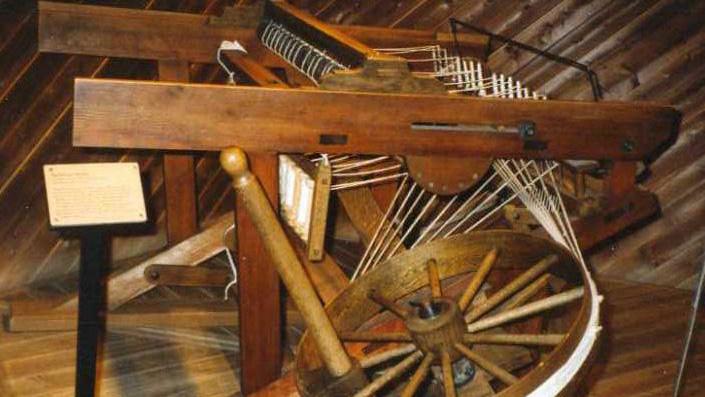The US complains that others steal its technology, but America was once a tech pirate itself
A spinning jenny: one of the machines that revolutionized manufacturing in the late 1700s.
In 1787, American agent Andrew Mitchell was intercepted by British authorities as he was trying to smuggle new technology out of the UK.
His trunk was seized after being loaded on board a ship. Inside the trunk were models and drawings of one Britain's great industrial machines.
Mitchell himself was able to escape and sought refuge in Denmark. But his mission marks the start of a sustained US campaign to steal technology from the world's hi-tech superpower of the day.
Mitchell was sent by Pennsylvanian economist and businessman, Tench Coxe, a close associate of Alexander Hamilton who was soon to become the first Secretary of the United States Treasury. Hamilton and Coxe were both convinced of the need for America to industrialize.
Their ideas are articulated in a Report on Manufactures presented to Congress in 1791. The report reminded Congress of the enormous problems the Americans had had during the Revolution because of the shortages of all kinds of military supplies, from guns and ships to shoes and uniforms.
At the time of the American Revolution, the 13 colonies were overwhelmingly agrarian and rural. Hamilton also believed in the importance of America developing its stock of capital, so it could invest in big economic and infrastructure projects. So the report urged Congress to do everything possible to nurture and protect manufacturing in America.
Historian Doron Ben-Altar describes Hamilton's campaign as "unabashed, state-sanctioned flouting of British law." Ben-Altar argues that Hamilton acted as though intellectual property, like physical property, was confined by national frontiers.
Hamilton had already won one victory at the constitutional convention, by adding the power to issue patents to the federal government. Benjamin Franklin apparently opposed the measure: he never applied for patent protection for any of his inventions, arguing they belonged to all mankind.
Hamilton used patents to lure immigrants with skills and knowledge to move to the United States. George Parkinson, for example, was awarded a patent in 1791 for a textile spinning machine, which was really just a rip-off of a machine he had used in England. The United States also paid his family's expenses to emigrate and re-locate to the US.
Coxe and Hamilton also helped set up various "societies for encouraging manufactures and useful arts."
The Brits were not happy about the attempts to steal their intellectual property. Severe penalties were on the books for anyone trying to take machines or designs out of the country, or even to lure skilled workers. It was actually illegal for such skilled workers to leave the country.
One man who eluded the British authorities was Samuel Slater, who heard about the US incentives and made his way to Rhode Island in 1789.
Slater had been apprenticed to a textile factory owner in England and brought his knowledge of the new cotton carding and spinning machines in use there. He became a partner with Rhode Island businessman, Moses Brown, and together they set up the first cotton factory in the US.
Slater became so rich that at the time of his death, his net worth amounted to one tenth of a percent of the country's gross national product.
In 1810, Massachusetts businessman Francis Cabot Lowell visited England and spent his time trying to figure out how the Brits had managed to automate the process of weaving cloth. He charmed his way into factories and attempted to memorize what he saw.
Back in New England, he worked with a clockmaker and managed to reproduce the weaving machine. Soon he and his Boston associates built a whole new city on the Merrimac River to house their new textile factories. The city was ultimately named Lowell after the enterprising spy.
The drive to acquire foreign intellectual property died down in the early 19th century, as home-grown Yankee ingenuity came to the fore, supported by American venture capital. However, America's industrial development in the first generation after independence was not guaranteed, and we can thank Hamilton for providing state support and protection of these new businesses.
Maybe the same will ultimately happen with China in the 21st century.
